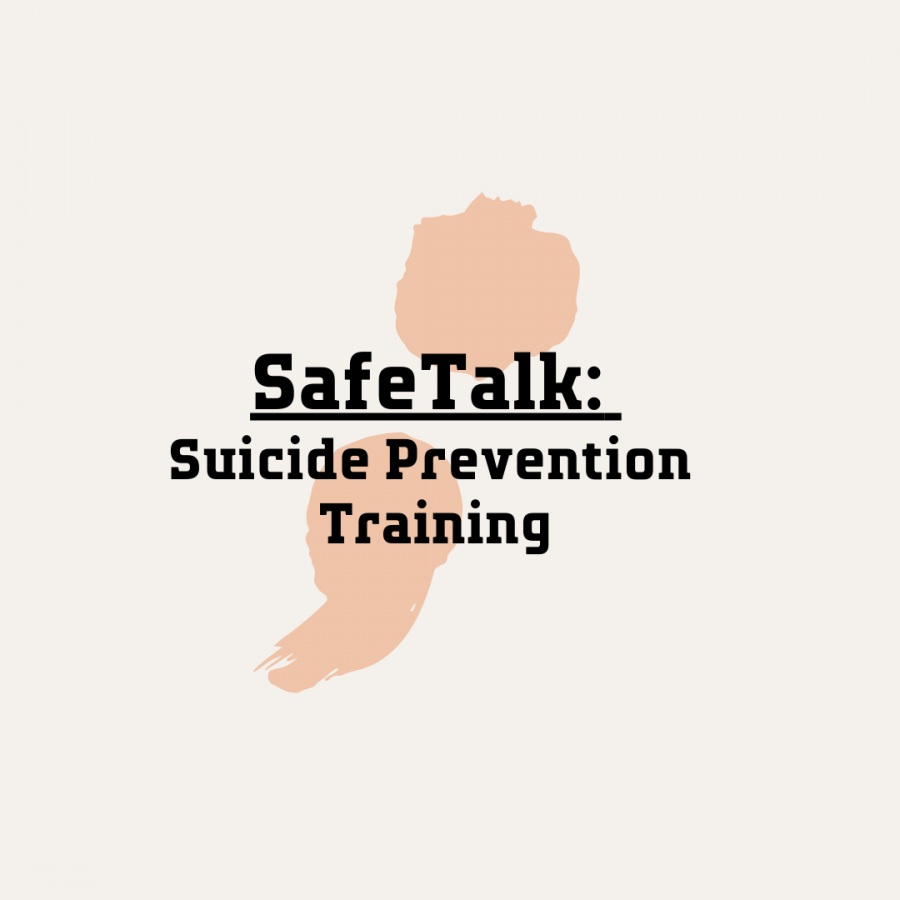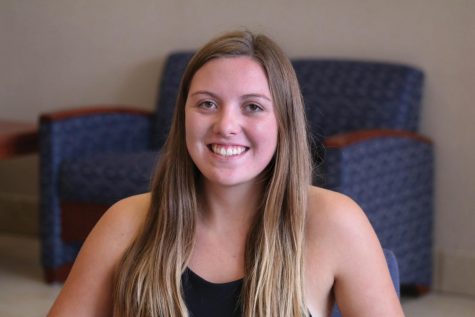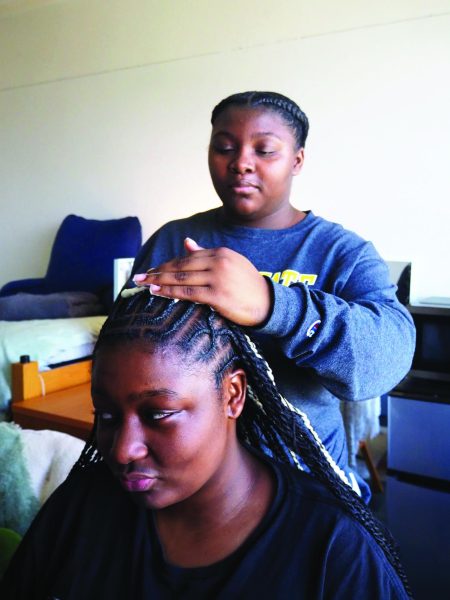SafeTalk – Suicide prevention training for college student
September 29, 2021
Speaker Donna Wolff presented SafeTalk, a three-hour suicide prevention training, to college students in the Kanter Student Center on Thursday, Sept. 23 for Suicide Prevention Awareness Month.
Wolff’s son gave his life away in 2009, so she is very passionate about educating others on how to help individuals who are struggling.
She is the founder of the Northeast Nebraska Suicide Prevention Coalition, which is an official non-profit organization.
“All the money that is raised stays in Northeast Nebraska and serves counties in a 60-mile radius around Norfolk to help families, suggest resources, provide free trainings and offer support groups after experiencing a death,” Wolff said. Wolff also works for the Winnebago tribe of Nebraska, where she is with the youth crisis intervention center and youth shelter. She focuses on suicide prevention in 10–to-24-year-olds, and the crisis center consists mostly of juvenile justice kids, Wolff said.
There are three suicide training sessions available: a one-hour training called SuicideTalk, a three-hour training named SafeTalk, and an extensive two-day training called Assist. The three-hour training focused on individuals that are trying to help someone struggling with thoughts of suicide and how important it is to be comfortable asking someone if they are contemplating suicide. The training had 27 participants in attendance.
“Be brave enough to ask that question and have those conversations,” Wolff said.
“Take the training. I think it helps a lot and the more you talk about it with people the more comfortable you feel, and it’s okay to practice and have people come up with scenarios on how you would handle that situation,” Alicia Dorcey McIntosh, director of student health and counseling said.
McIntosh said it is important to find out if someone who is talking about suicide has a plan, a timeline and if that plan is possible. She also pointed out how necessary it is to stay in contact with that person until you can get them more help.
“We can’t be everywhere, so we really rely on other students, faculty, and staff to be those first responders,” McIntosh said. “Students are not going to come to us first and tell us they’re suicidal. We’re way down the road. We need everyone to know what to do right away.”
Shelby Altstadt, a human services counseling major, participated in the training.
“I feel like I better understand it and what to say,” Altstadt said. “I think if I came into this situation, this would be very helpful.”
The training showed ways to move beyond the three common ways people handle conversations of suicide: miss, dismiss and avoid.
“You shouldn’t avoid people’s feelings,” Altstadt said. “Sometimes it is really difficult to notice, but once you do, then you should focus on it and make sure everyone is doing alright.”
McIntosh encourages students to utilize the free services on campus. Some helpful services include counseling, the Holland Academic Success Center, Financial Services, behavioral intervention teams, the physician assistant and residential assistants.
Those that are struggling with thoughts of suicide, the National Suicide Prevention Hotline is 1-800-273-8255. Struggling individuals can also text 741741 for immediate help. In July of 2022, the three-digit number 988 will be available to contact the National Suicide Prevention Hotline.
“There are tons of help,” Wolff said. “If anyone is currently struggling, you don’t have to die by this. There is help.”










